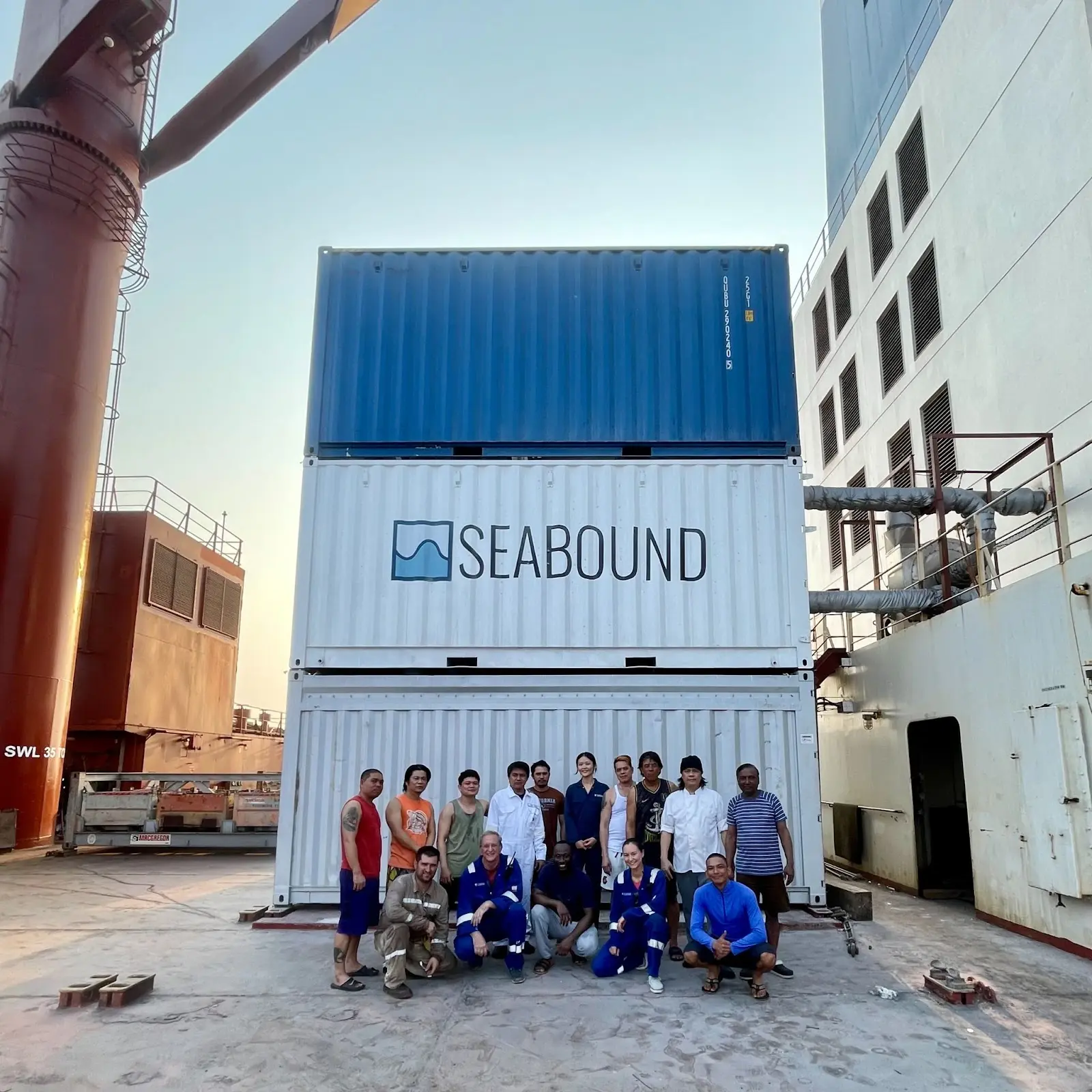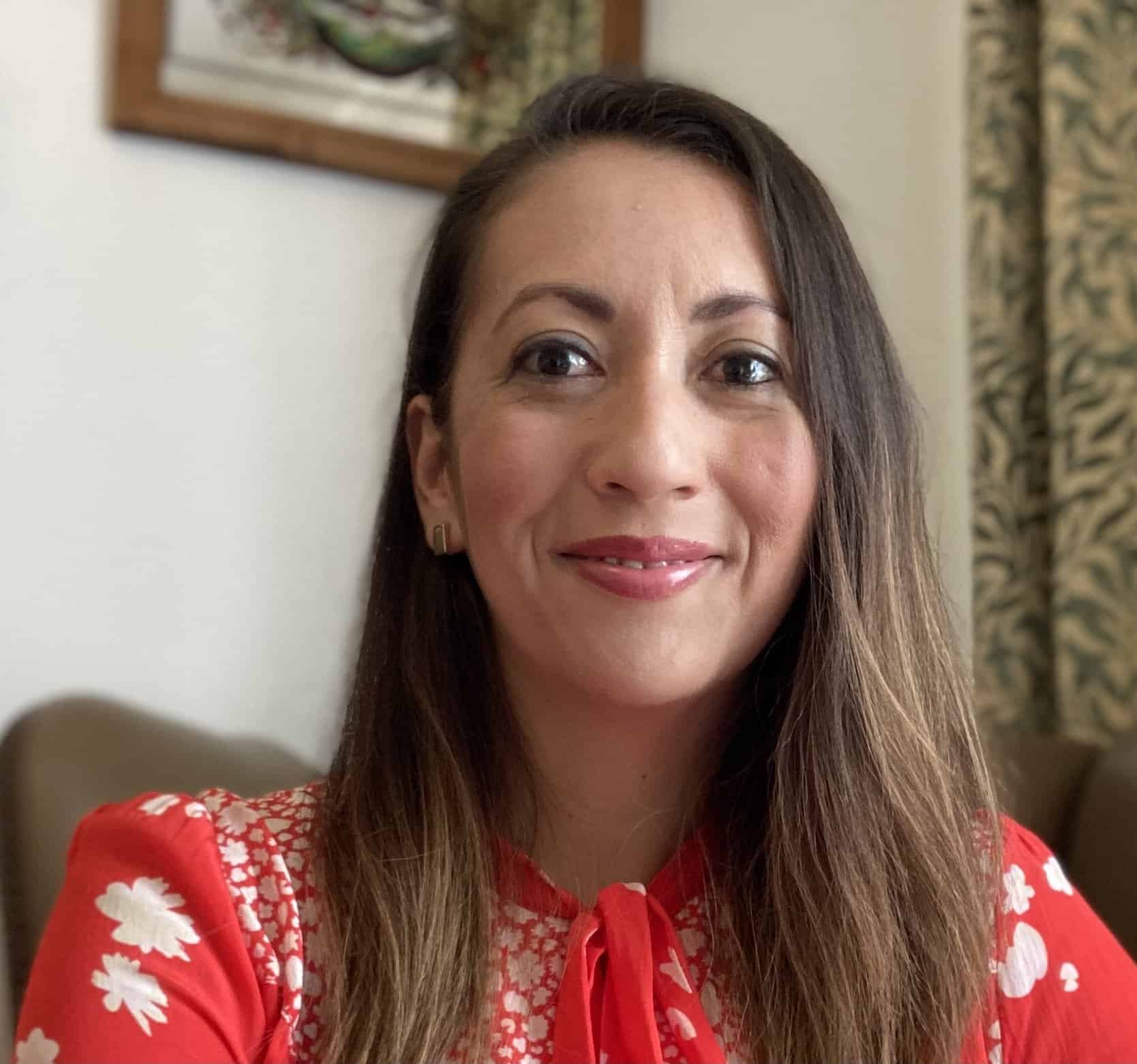Entrepreneurs Alisha Fredriksson and Roujia Wen spent months in 2022 scouring London for the right space to develop a prototype. Their big idea — to capture carbon emissions from cargo ships by trapping the gas amongst calcium oxide pebbles, through a system fitted on board — required a big, well-equipped space.
The options their search yielded were less than appealing. Large warehouses that had the high ceilings Fredriksson and Wen needed to build their venture, Seabound, were typically empty, with tenants needing to fully equip it themselves with the right machinery, plus the electricity to power it. They tended to be in industrial zones with only the likes of auto shops or dark kitchens for neighbors, and they usually required signing a five-year lease.

“As a six-month-old startup at the time, it was a scary proposition,” Fredriksson recalls.
Then Seabound found BLOQS, a 32,000-square-foot converted warehouse in the north London suburb of Enfield, fully kitted out with £1.3 million (around $1.7 million) worth of light industrial equipment for all kinds of manufacturing, including wood processing and metal fabrication, laser cutting and engraving, 3D printing, sewing machines, spray painting and more. If that didn’t already make the case for moving in, the flexible membership structure then quickly sealed the deal for Fredriksson and Wen.
The initial sign-up is free, with members simply paying a daily rate for the machinery they need to use, as well as for flexible office and storage space if they need it. Raw materials are available to purchase too, price-matched with local suppliers. And if members need to learn to use a particular piece of equipment, they can pay for training. An added bonus is the on-site restaurant, where an award-winning chef serves a seasonable and affordable Mediterranean menu. Yet the biggest draw for the Seabound team was the community of 1,000 other like-minded members.
“It’s a fun place to go to work every day. We have a whole ecosystem of people that we’re a part of. Whereas if we were in our own warehouse on some industrial site, I don’t think we would have friends there — it would be more lonely,” says Fredriksson.
The expertise available at BLOQS has also allowed Seabound to tap into support on an as-needed basis. “We’ve actually also been able to keep our team very lean, because we’ve been able to occasionally work with people at BLOQS as a kind of ‘surge support,’” Fredriksson says. “For instance, there are technicians at BLOQS that have helped us, and there are electricians who are members that we’ve been able to contract with. So we have flexibility in terms of space and resourcing.”
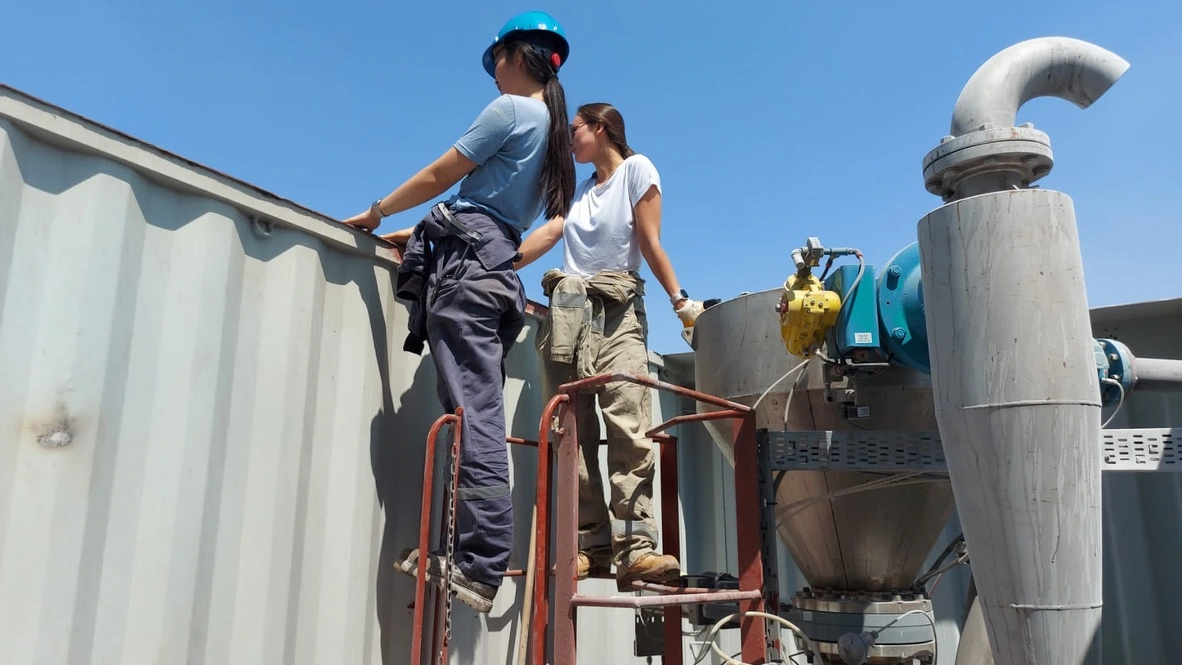
Seabound was able to leverage everything on offer at BLOQS to test its carbon capture technology, with the team spending two months in late 2023 on board an 800-foot commercial container ship. The Seabound prototype successfully captured around one metric ton of CO2 per day, meaning the team, now back on dry land at BLOQS, can move into their second phase of research, development and testing, aiming to deploy their next system onto a ship in 2025.
Crushed by negative news?
Sign up for the Reasons to be Cheerful newsletter.BLOQS co-founder Al Parra feels Seabound is one of the best examples of why he and his partners set up the space, which he describes as having “its own dynamism,” to drive innovation. “What this women-led climate tech engineering group is doing is incredible,” says Parra. “They started at BLOQS because they couldn’t take on the risk of their own premises. That very often is the case, that people come to us because they have a physical need of something that we provide, but then they stay because of the community. They’re in this confluence and mix of abilities, skills and knowledge. If you don’t know how to do something, you can be damn sure you’re one handshake away from somebody who does.”
As the UK’s largest open-access professional maker space — and the country’s first pay-as-you-go space of its kind — BLOQS has created 380 full-time jobs and has turned over a collective £15 million a year (around $19.1 million) since it launched in 2012. (It was then in a different location and moved to Enfield in 2022.)
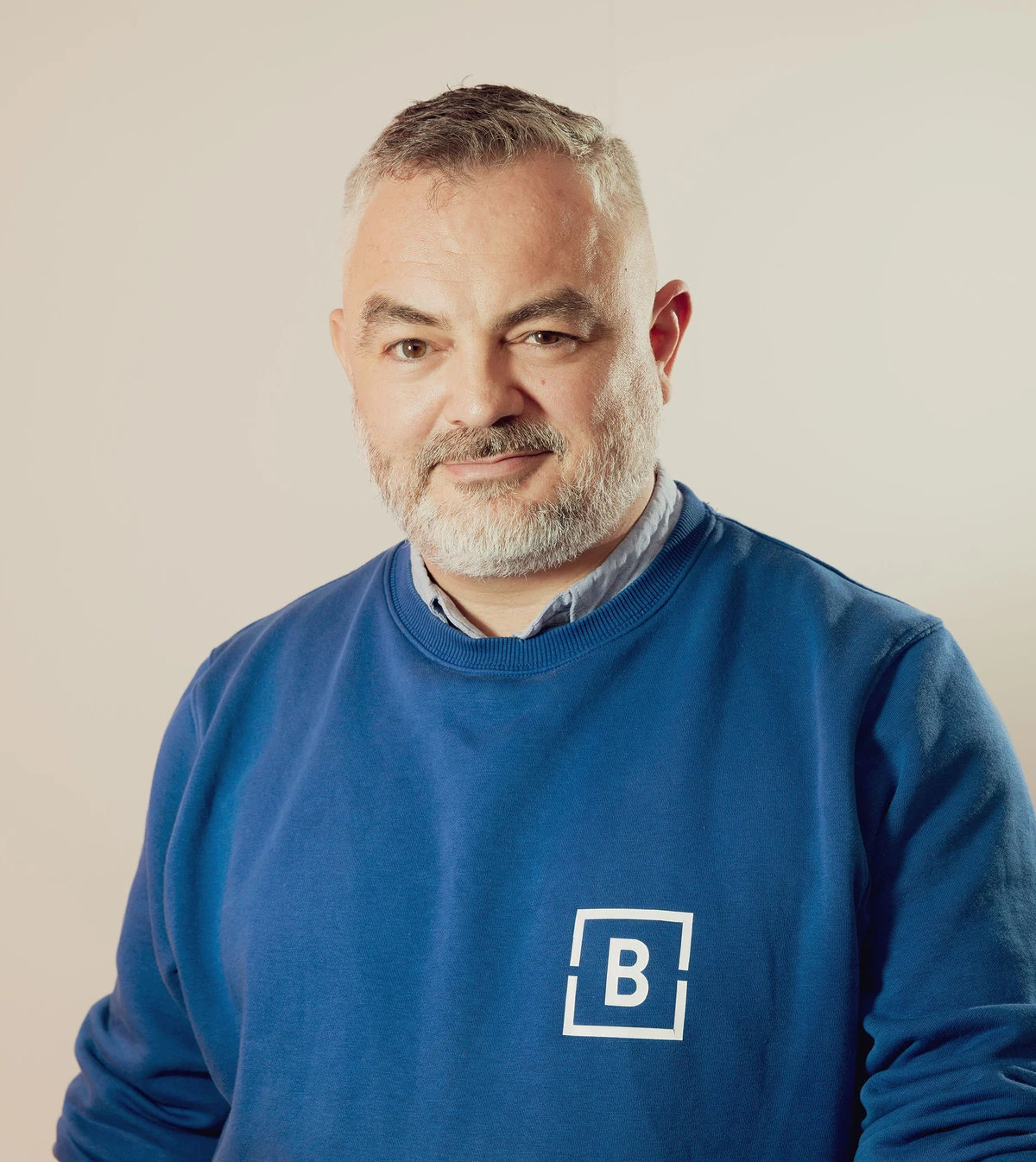
As an open-access maker space in London, BLOQS isn’t alone. Thirty-eight maker spaces in the UK capital are listed on the Open Workshop Network, while 3D printing support organization CREATE Education lists community-centric spaces across the country on its site. Discipline-specific workshops also exist for professionals. But where BLOQS is unique, argues Parra, is that it’s the only cross-discipline site out of which someone could run a business.
“We wanted people to not just make whatever it is that they needed to, but we wanted to provide a facility where somebody was able to do what it is that the world needs,” says Parra.
Parra has observed that BLOQS members are able to leapfrog the initial set-up period of building up manufacturing contacts, which can take up to 10 years.
“We simplify access to things which are really expensive. If you don’t come from a privileged background, it’s difficult to get together that money. At BLOQS, you can walk straight in, from something like a building site, from a course or degree, or you can transition from another career, and we’ve got all of the resources,” says Parra.
“By making all of the technology that we’ve got available and affordable, we are diminishing the barriers between that and the creative mind.”
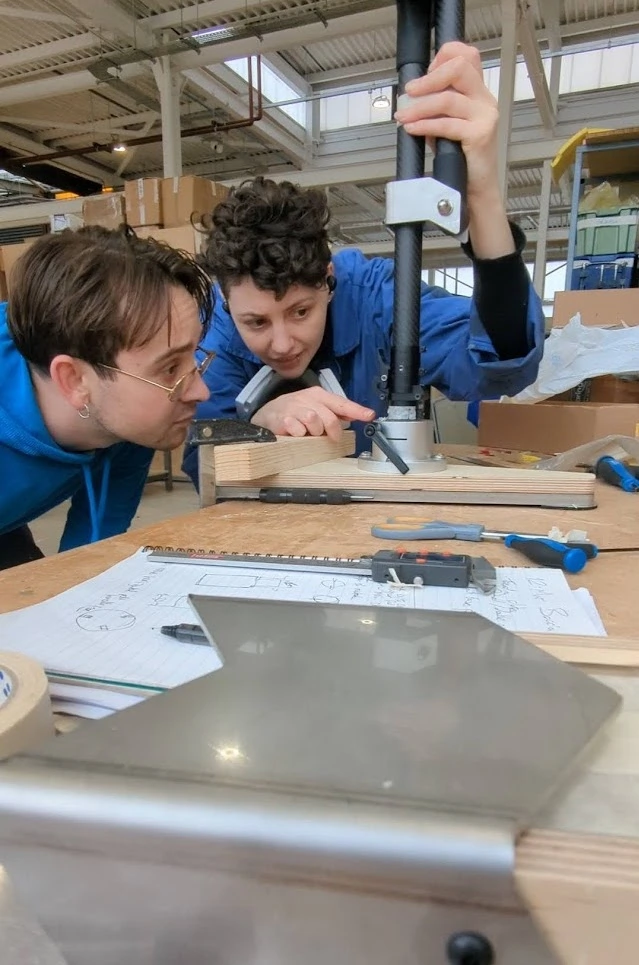
Some entrepreneurs see BLOQS as a testing ground for new ideas and stepping stone to a more permanent, private premises, while others see fit to call it their home for the foreseeable. Seabound’s future, for example, looks promising enough that Fredriksson is already forecasting a need for a larger separate space to accommodate dedicated facilities as well as manufacturing partners, although research and development, she thinks, could still be done at BLOQS.
The charity DEMAND, meanwhile, which creates assistive products for people with disabilities, has made its journey to BLOQS in reverse. After having spent the previous 20 years operating out of its own factory just north of London, the team migrated to BLOQS in 2022 after deciding its impact could be greater working in a shared space. Spending time and money on building and machine maintenance was holding the organization back, and with no other similar outfit nearby, the team felt isolated.
“The combination of flexible space and industrial-grade machinery has had a lot of impact on our speed and efficiency. And having access to the community makes it feel like we’re in a much bigger organization — we can lean on, and be inspired by, other people,” says Lynnette Smith, DEMAND’s head of creative.
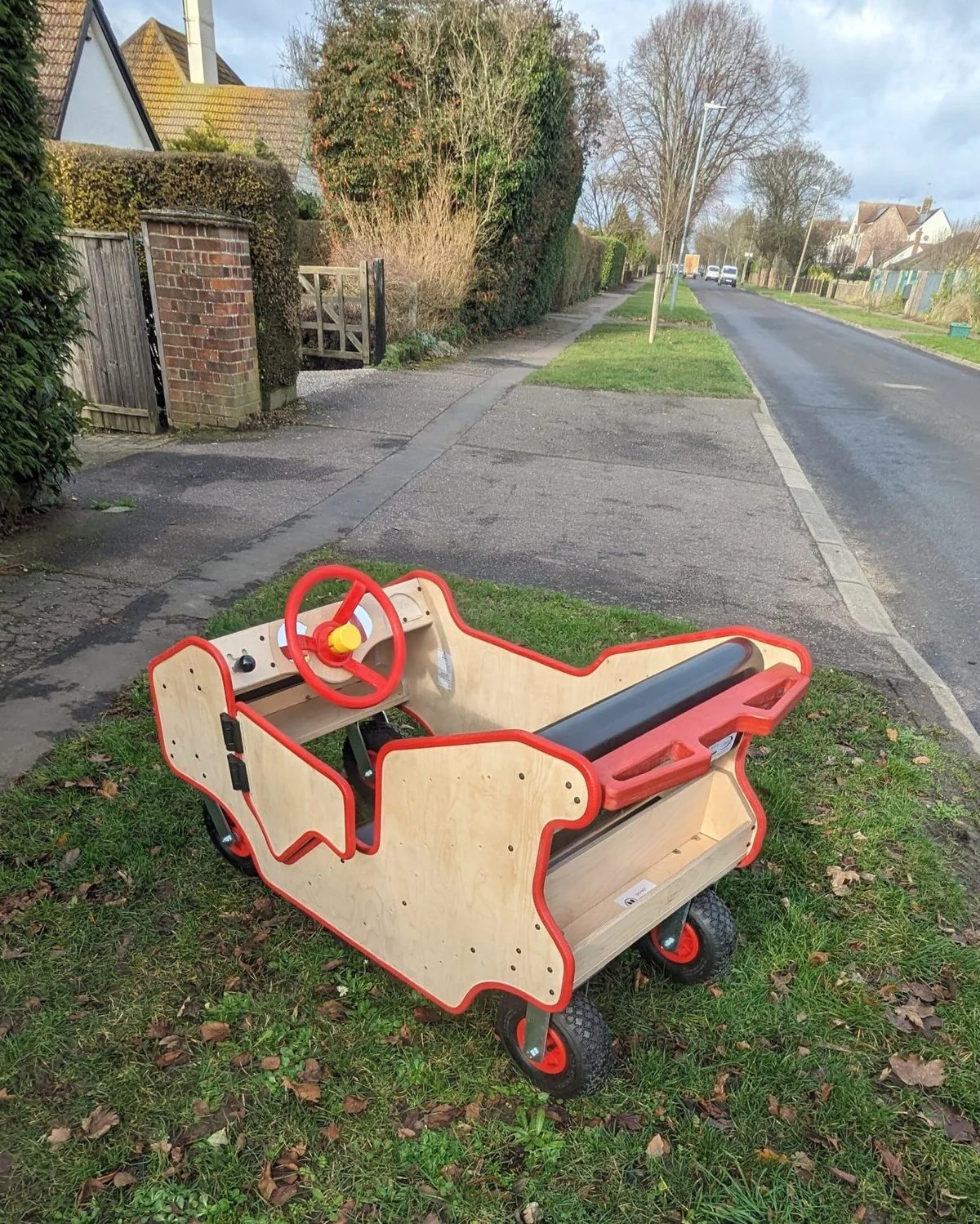
“Being here has definitely helped us maximize the impact of each thing we design. We were very skilled at making one of something for a specific individual. While that’s still the purpose of DEMAND, to make something for an individual need, we’ve now got the machinery that helps us make much more repeatable things.”
DEMAND products refined at BLOQS include a ramp for boccia, a Paralympic sport in which athletes use the ramp to propel their ball to get as close to the target ball as possible, as well as a “big car,” a push-along car designed for children with balance issues who are unable to ride a bicycle. BLOQS’ machinery has reduced human error, and accelerated the production process, says Smith. The technology at BLOQS has also streamlined the production of an eye-led communication aid, which was originally designed for one user, Mark, who DEMAND has since collaborated with to enable it to be reproduced for others.
Growing the charity in this way is one of Smith’s key goals, as is collaborating more closely with users like Mark.
“We would love to keep working with BLOQS to make sure that accessibility happens, potentially also in new places that BLOQS open as a partnership — that’s something we’d love to see the impact of,” says Smith.
Expansion is definitely in the cards, according to Parra, with the BLOQS team assessing the feasibility of a second site in either South London, Birmingham, Liverpool, Manchester or Glasgow, to open in 2025. Beyond the UK, Parra sees global demand for spaces like BLOQS. Similar models are already emerging, like South Africa’s Made In Workshop, Ireland’s Benchspace and Artisans Asylum in the US, all offering flexible, affordable models with a range of machinery.
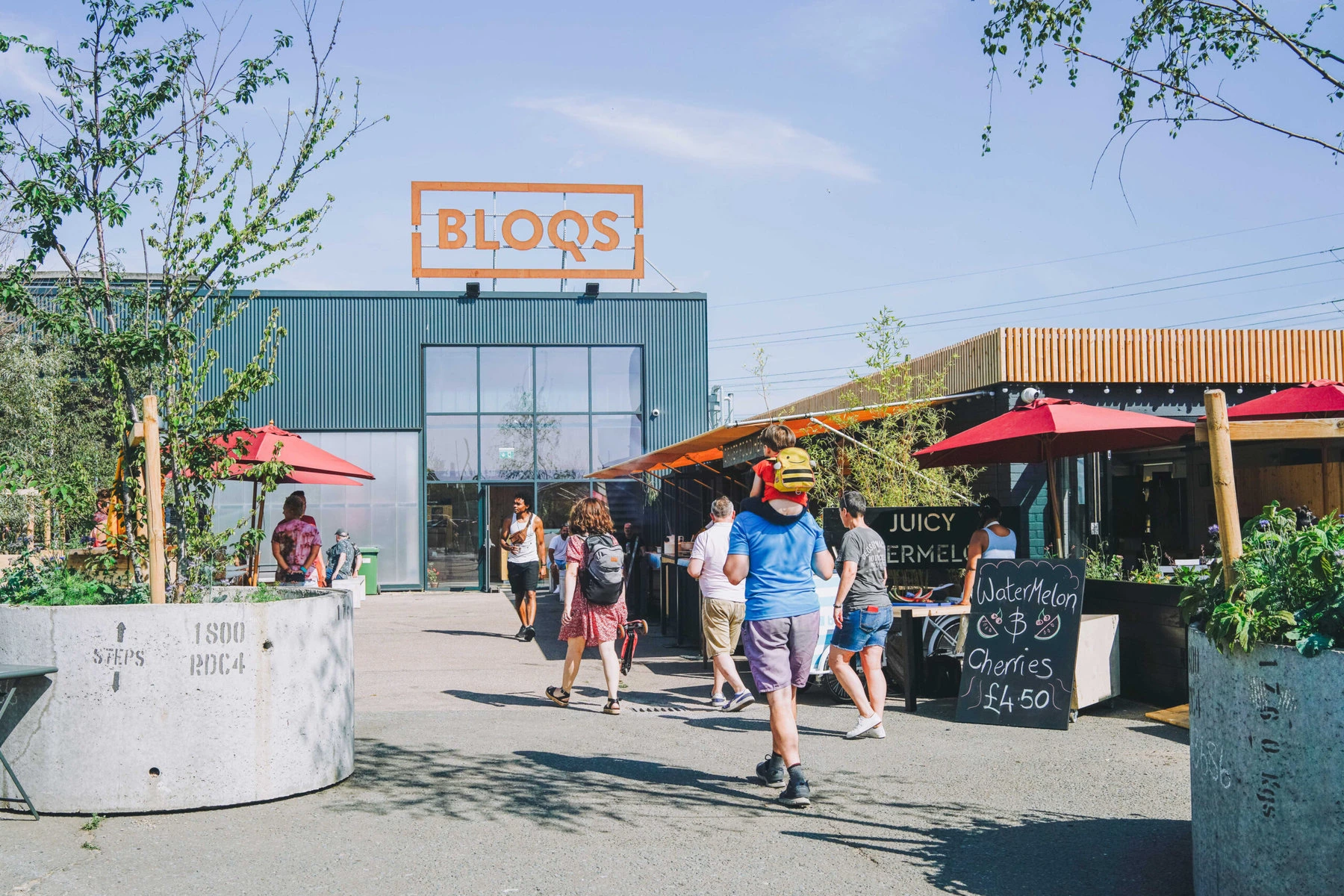
Parra envisions real potential in developing countries, where microfinance schemes have become common in helping small-scale entrepreneurs build businesses and a livelihood.
“The developing world, where everybody’s one or two generations away from a village, understands this concept of sharing resources so intrinsically, that we’re getting interest from South Asia, Africa and Eastern Europe [to open another BLOQS],” says Parra.
“We’re offering a model for how we can make the things that we need, in a way that is sustainable.”
